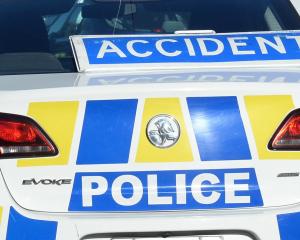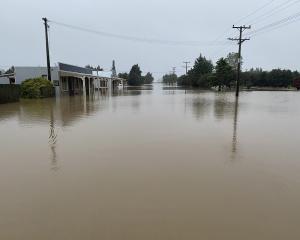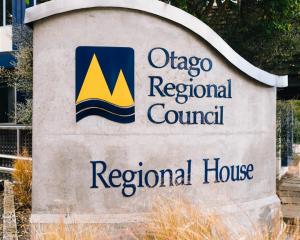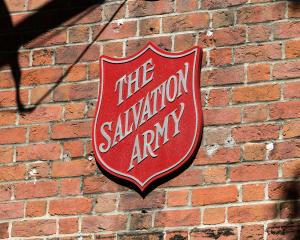Bar owners and police fear it is only a matter of time until someone fatally overdoses as drugs flood the student party scene.
Police concern about MDMA and other amphetamines had prompted them to speak to bar owners about the problem, Detective Nik Leigh, of the Southern district organised crime squad, said.
A bar owner approached police after regularly finding bags used for holding drugs discarded in the toilets and on the dance floor of the club in recent months.
The Southern District Health Board confirmed two people had presented to Dunedin Hospital's emergency department with issues stemming from recreational drug use during the past fortnight.
Det Leigh said the drugs flooded the party scene during orientation and reorientation weeks.
Anecdotal claims also indicated the supply of amphetamines was increasing in New Zealand.
''It's a lot more prominent now than it ever used to be,'' Det Leigh said.
''I firmly believe it's only a matter of time until we have a fatal overdose.''
Bags discovered in a Dunedin bar were tested and found to contain traces of amphetamines, likely to be MDMA and similar stimulants, he said.
''These days you don't have to be a gangster to get a hold of that stuff.
''A couple of weeks ago there was another student admitted to hospital.
''These things were termed `pingers', which is just the local colloquial name for it.''
Young people in North Dunedin were especially at risk as their access to drugs was amplified by their desire to experiment and the party environment in the area, Det Leigh said.
''They have got this new sort of freedom [living away from home] and they probably experiment more than they otherwise would.''
The greatest danger they faced was being unaware of what they were buying.
''At the end of the day, they don't know what's in it,'' he said.
''More often than not it's cut.''
The Otago Daily Times understands heavy metals and other potentially fatal substances have been used to cut MDMA and increase the pills' weight for profit.
National Poisons Centre toxicologist Dr Leo Schep, in Dunedin, said the centre received few calls about illicit drugs because of the stigma.
However, he had heard anecdotally of the increase of amphetamines on the street, but those buying the drugs had no way of knowing what it contained.
''You don't know what you are buying,'' he said.
''You don't know what they have cut it with and half the time the people who have imported it into the country don't know what they are getting.
''It is a lottery what you buy and then somebody starts having a seizure on the dance floor and you don't know what they have taken.''
Despite MDMA's reputation as a safe drug, it was toxic, Dr Schep said.
''There is a risk and the risk is lower with ecstasy, there's no doubt about it, but having said that people have died taking ecstasy,'' he said.
''It is an amphetamine.''
People could die from overheating, dehydration or hyponatraemia (low sodium concentration in the blood) causing brain swelling and coma.
The greatest risk was posed by what the drugs were cut with and whether the compound was something more toxic than MDMA, he said.
The proprietor of the popular student haunt where the empty bags were found told the ODT the problem only came to light in recent months.
''I have been in student bars for 20 years and [only recently] we have been finding them,'' the proprietor, who did not wish to be identified, said.
Drugged-up revellers were becoming a regular fixture, he said.
''We usually see a few about that are clearly under the influence of something - chewing their face off,'' he said.
''If it's noticed at the door they are denied entry.''
He feared for the safety of those taking the drugs.
''Someone's going to die eventually from taking something that's not meant for human consumption,'' he said.
''They don't know what they are putting in their bodies.''
Det Leigh said police were targeting those importing the drugs.
Two Dunedin students have been jailed in the past eight months for importing drugs into Dunedin, including ecstasy and methamphetamine.
''There's two aspects of it,'' Det Leigh said.
''There's the effect on their health.
''But I don't think they quite realise the seriousness of the punishment or penalties they face if they do get caught.''
SDHB emergency department clinical leader Dr Caroline Collins said, in an emailed statement, despite recent emergency department presentations there did not appear to be a problem.
''Across a total of 1448 presentations at Dunedin ED in the last 12 days there were two patients who presented with issues relating to recreational drug use,'' the statement said.
''There does not appear to be an increase in party drug admissions.''












